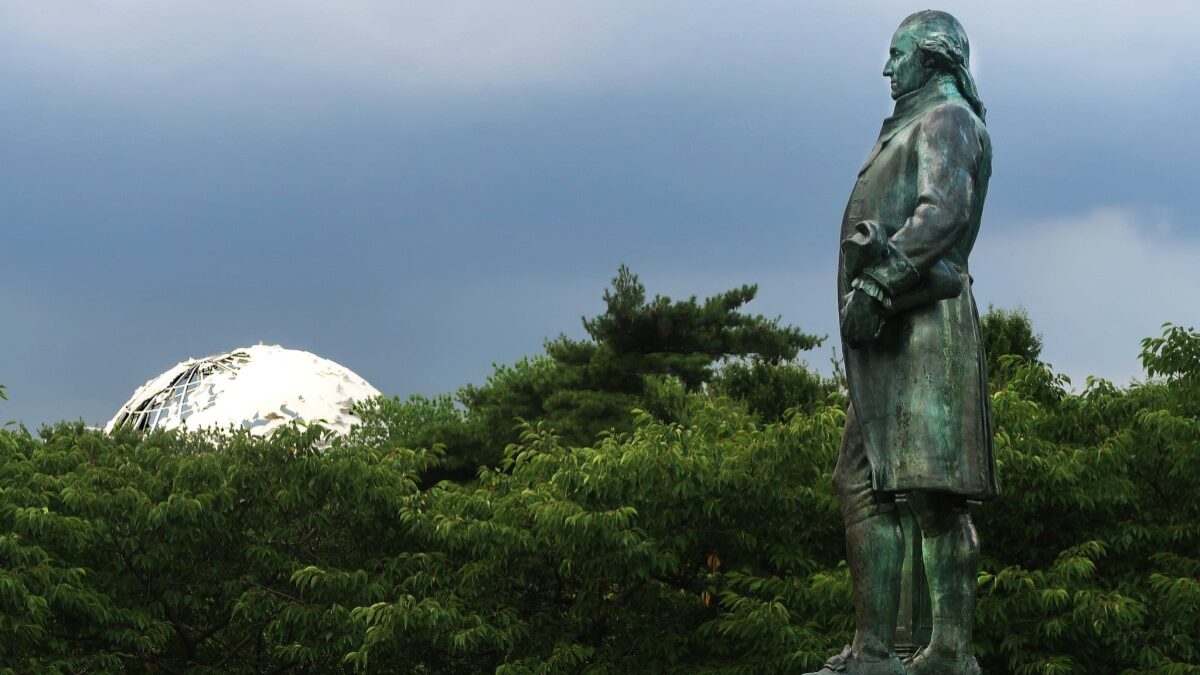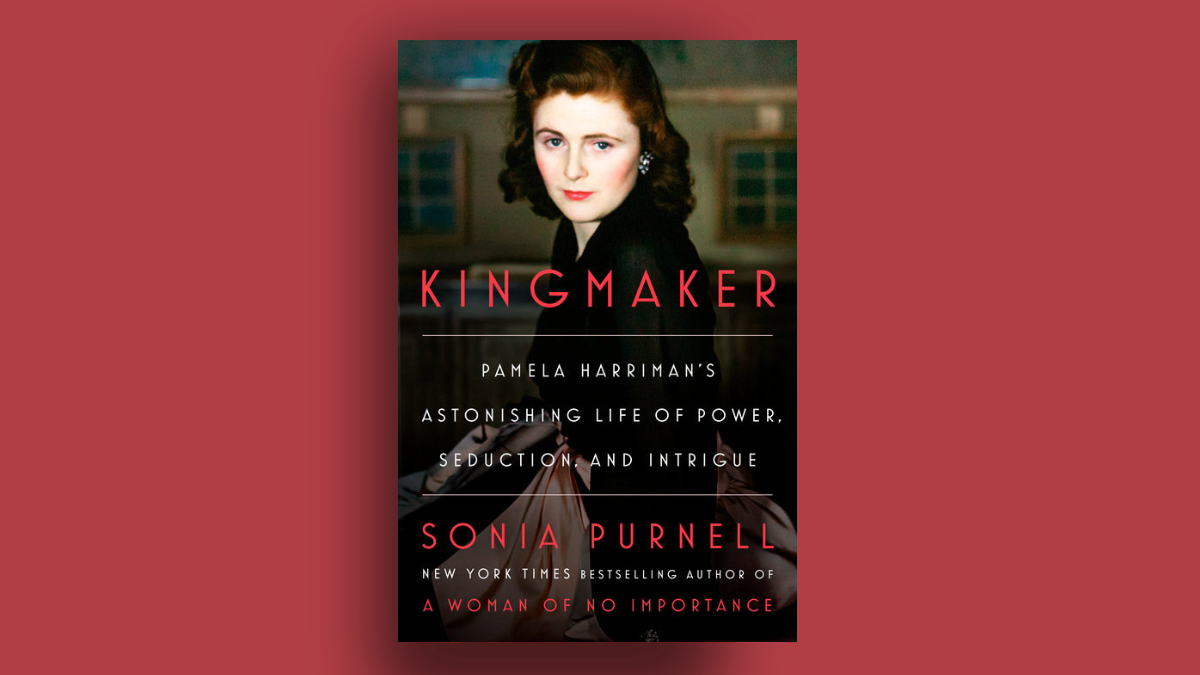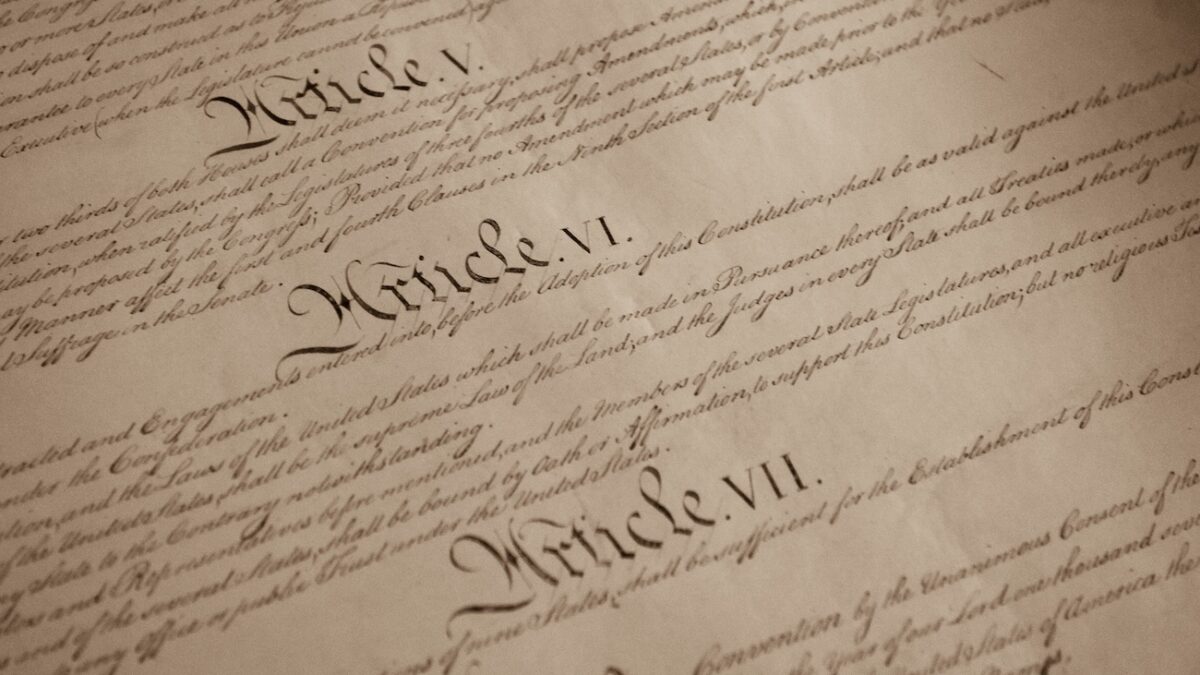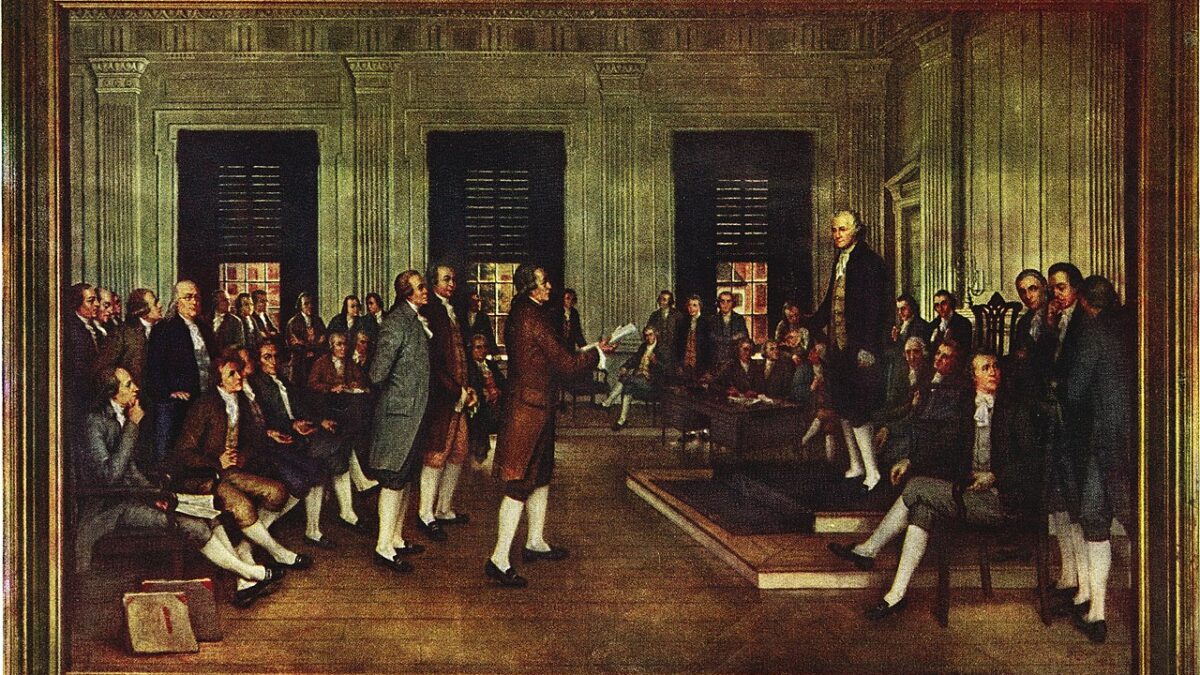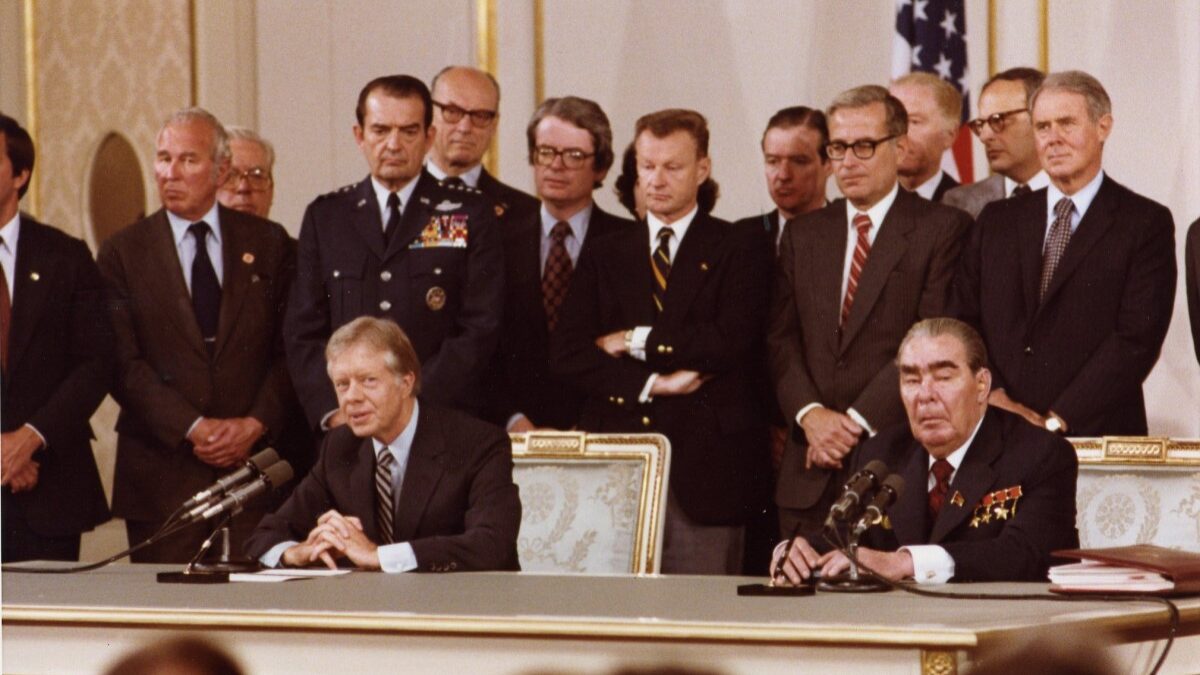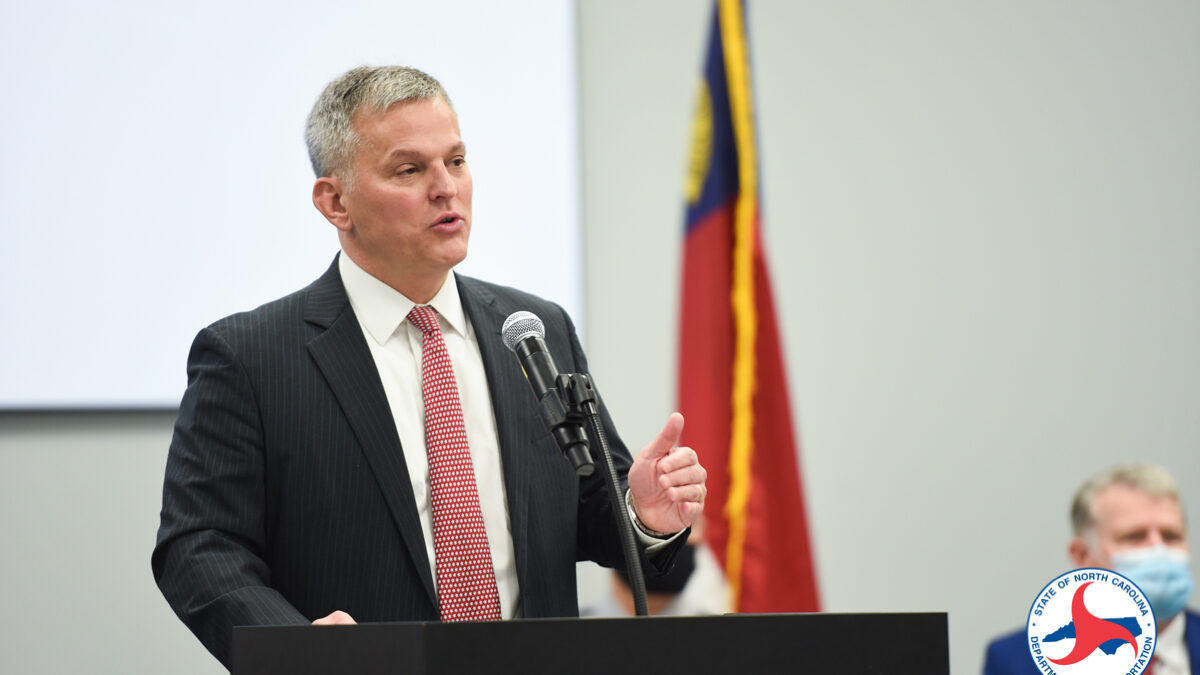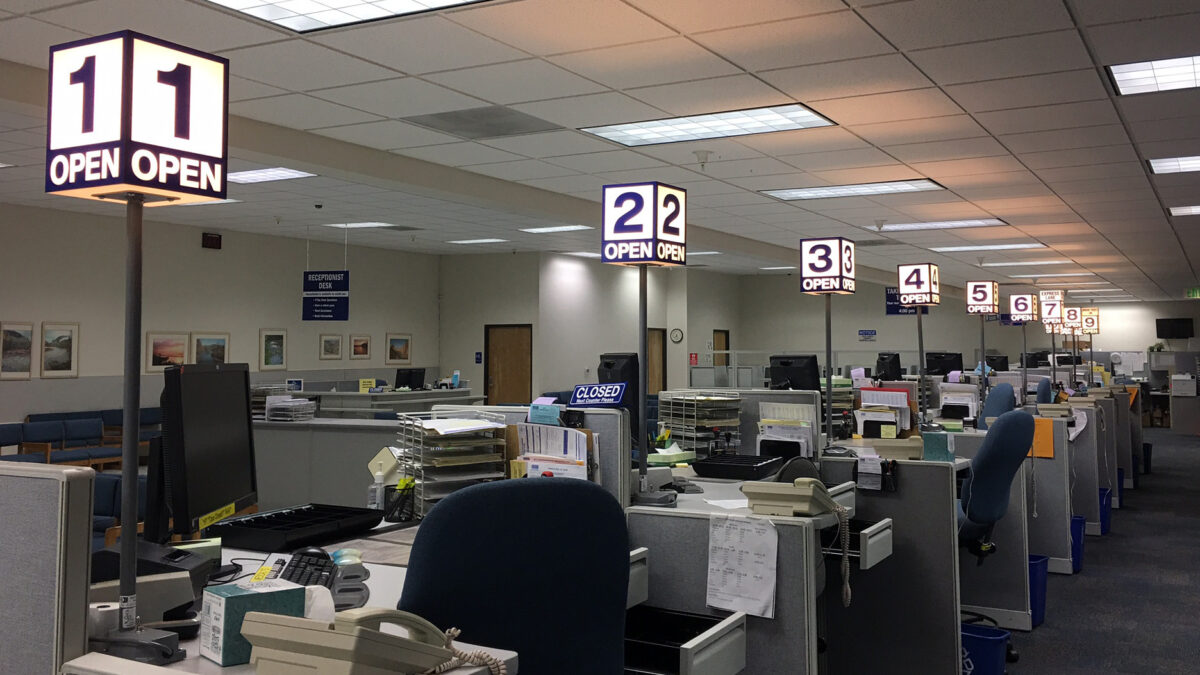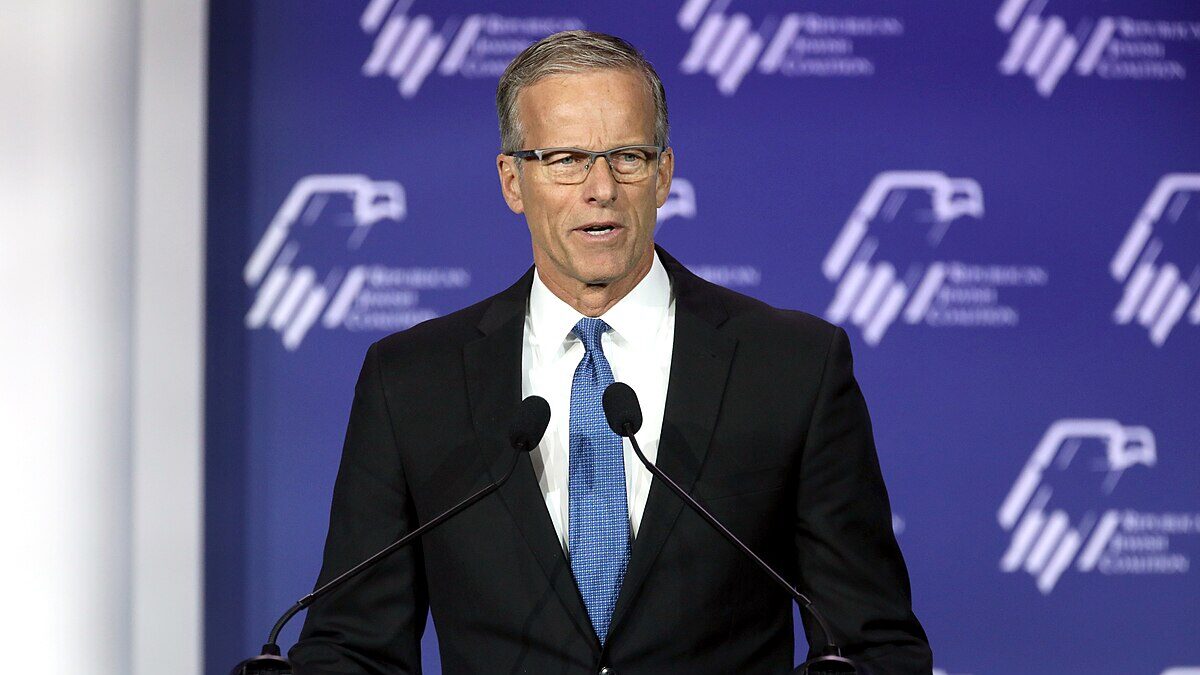This toast was given in honor of George Washington at a president’s day celebration last week.
Friends, we come here this evening not to praise the likes of James Buchanan, or James Earl Carter, or other lesser presidents. We are here to praise greatness. And while there may be a few near-greats among them, there are only two presidents who make the cut.
As it so happens, this semester I am teaching two of my graduate courses—the American Founding and Constitution, and American Constitutional Development—concurrently. It is sometimes hard to keep them straight, toggling back and forth between the 18th and 19th centuries. Yet, coincidentally, the courses are now moving in timeless parallel as in each we are just seeing true greatness—in the form of a new general and a young legislator—stride on to a field of smaller statesmen and mere politicians.
Washington’s cause was the establishment of a regime of civil and religious liberty, not an imaginary republic but one in fact, enduring in the course of human events. He completely absorbed and embodied the principles of the Founding, and assured first military and then more importantly constitutional success for what was to be a new nation. Lincoln said that Washington is the mightiest name on earth: “To add brightness to the sun, or glory to the name of Washington, is alike impossible.”
Lincoln’s task was to see that Washington’s cause—a young country and its Constitution, all dedicated to the principles of the Declaration, at the center of which is “an abstract truth, applicable to all men and all times”—did not perish from the earth.
General Washington’s Orders in camp on July 2, 1776 called on his fellow patriots in arms “to resolve to conquer or die.”
Our own Country’s Honor, all call upon us for a vigorous and manly exertion, and if we now shamefully fail, we shall become infamous to the whole world—Let us therefore rely upon the goodness of the Cause, and the aid of the supreme Being, in whose hands Victory is, to animate and encourage us to great and noble Actions.
Washington’s cause—that is to say, our cause—is under intense attack these days, perhaps as never before. We are engaged in that battle, but the ultimate outcome is far from known. With that keenly in mind, consider this from an obscure 1839 speech of a young Representative in the Illinois General Assembly:
If ever I feel the soul within me elevate and expand to those dimensions not wholly unworthy of its Almighty Architect, it is when I contemplate the cause of my country, deserted by all the world beside, and I standing up boldly and alone and hurling defiance at her victorious oppressors. Here, without contemplating consequences, before High Heaven, and in the face of the world, I swear eternal fidelity to the just cause, as I deem it, of the land of my life, my liberty and my love. And who, that thinks with me, will not fearlessly adopt the oath that I take. Let none faulter, who thinks he is right, and we may succeed. But, if after all, we shall fail, be it so. We still shall have the proud consolation of saying to our consciences, and to the departed shade of our country’s freedom, that the cause approved of our judgment, and adored of our hearts, in disaster, in chains, in torture, in death, we NEVER faultered in defending.
Let us raise a toast this evening, in anticipation of many toasts to come in future years, to George Washington, who founded our country, to Abraham Lincoln, who saved our country, and to those of great soul, firm character, and good heart whose task it is now to vindicate the cause of liberty.
Let none faulter, for if we are to succeed, we will do so in the name of Washington and Lincoln.
